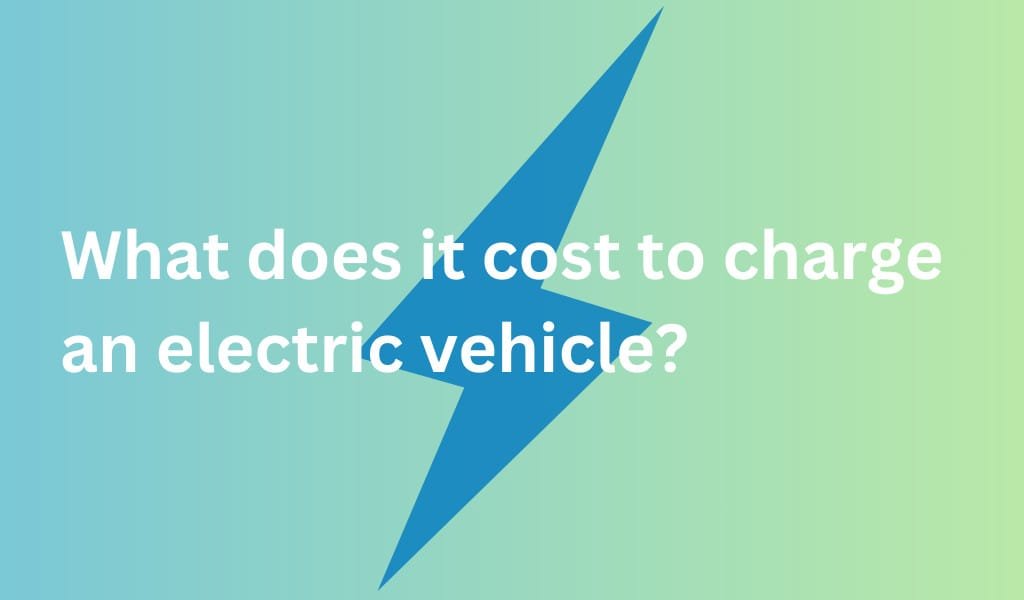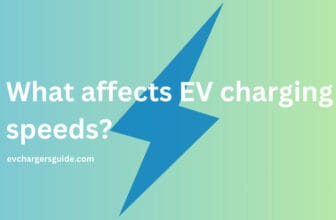
The cost to charge your EV is calculated based on ‘per unit’ of power consumption (i.e. per kilowatt-hour) or cost to fully charge the battery. We will look at both here.
And they are usually with a normal rate and an off-peak rate. So will consider both in calculating cost of charging.
So let’s start with normal rates.
In This Article:
Normal charging rates
Cost Per kWh of Charging
Across the United States, the average cost to charge an EV throughout the day with
- Level 1/2 home charger is 15¢ per kWh,
- Level 2 public charger is 20¢ to 25¢ per kWh &
- Level 3 public charger costs 40¢ to 60¢ per kWh.
Cost of 100% Charging an EV
Now considering your EV has a 90kWh battery then, at usual rate of electricity the total cost to fully charge the battery (from null to 100%) comes to around,
- $13 charging with Level 1/2 home charger,
- $20 with a Level 2 public charger,
- $40 with Level 3 public charger.
However, the unit price varies with different regions and it changes with time. Say, at the time of writing the unit cost of electricity in Louisiana was the lowest in USA coming to 11.57¢ per kWh, while charging in Hawaii costs 42.1¢ per kWh, the highest one.
Off-peak charging rates
Now, remember these are the average costs of charging throughout the day. But if you charge at specific off-peak hours then charging cost can come down to almost 50% to 80% cheaper rate to that of usual cost. i.e. off-peak charging rates come to 50%-80% cheaper than that of the normal rates.
Cost Per kWh of Charging – Off peak
So, the unit price of charging during off-peak hours with
- Level1/2 Home charger comes to around 3¢ to 7.5¢ per kWh,
- Level 2 public charger comes to 5¢ to 12.5¢ per kWh &
- Level 3 public charger it comes 10¢ to 25¢ per kWh.
Cost of 100% Charging an EV – Off peak
Now considering your EV with the same 90kWh battery then at off-peak rate of electricity, the total cost to fully charge the battery (from null to 100%) comes to around,
- $2.6 to $6.5 charging with Level1/2 home charger,
- $4 to $10 with a Level 2 public charger,
- $8 to $20 with Level 3 public charger.
Charging-Time-based cost at Public charger
However, some public chargers cost based on how long you use a charging stall. Which means based on the time it takes to complete a charing session.
Usually, this is calculated based on per-minute or per-hour of charging.
Normally per-hour charging cost at
- Level 2 public charger ranges from $1 to $5, &
- Level 3 charger ranges from $10 to $30
These charging time-based costs vary with location and EV charging network.
Further Guide:
Do you want to know How much time it takes to charge an Electric Vehicle? – Here you go
Other Charging Costs – Using Public Charger
Apart from this direct cost of charging there are other costs as well that certain public chargers may charge at certain times, like parking fees, Idle fees, Congestion fees and subscription or membership fees.
- Parking fees may be time-based or session-based fixed fees.
- Idle fees are based on time depending on how long your EV remains in parking after completing the charging session.
- Congestion fees are extra costs incurred if you go to charge your EV which is already at a certain State of Charge, mostly 80% and above.
- Subscription charges, certain EV charging networks have a subscription cost in addition to charging costs but with some extra perks like the lesser cost of charging (up to a limit weekly or monthly, etc) and using facilities like restrooms, shopping, dining, etc.
but these extra costs are totally subject to the individual charging network or station policies.
However idle fees and congestion fees are there in almost every public station to make charging accessible to more users when the site is busy with huge charging demands.
Cost of Charging EV at Home charger VS Public charger
Remember, the exact cost of charging with a home charger and a public charger also varies. Normally public charging cost is coming to around 2x to 3x that of home charging.
Because, home charging cost is simply what a utility provider charges you for electricity, but with a public charger it’s different. Those are run as a business and by EV charging networks, so it includes their cost of electricity, operations, and profits which makes it more expensive than home chargers.
And public chargers are more robust and rugged than home chargers because those are going to be used by the myriad public, in all different (maybe in all rough) ways. So those have to be sturdy. So the cost of a public EVSE unit itself is very high. Which again adds up to the cost of using it.
Calculate EV charging cost by Yourself
So the simple formula to calculate the total cost of charging, multiply the kWh consumed in charging your EV by the unit price at that time.
Total Cost of charging = Total kWh consumed * Unit price
Formula to calculate cost of EV charging
You can use this formula to calculate daily, weekly or monthly costs to charge your EV by looking at historical charging stats of your EV.
Certain EVs provide these stats in the vehicle dashboard or in the owner’s account. While there are also some third-party apps providing this feature among others.
So now I hope you have thorough clarity about the cost of charging an electric vehicle.
See you in the next article then!
Note: The cost details provided here are based on the rate at the time of writing. As this cost varies regularly, please visit the respective portal of the charging network or electricity utility provider to get accurate cost details for the particular location and time.
FAQs
Does charging an electric car at home raise your electric bill?
Yes, charging at home adds up to your electric bill. Charging your EV uses electricity just like any other appliance uses electricity in your home.
So probably you will have an all-in-one electricity cost added to your bill including usage of the EV charger and other electricity usage in your home or usage of electricity for an EV charger comes separately depending on your utility provider.
But remember the cost of charging at home is 50% to 70% cheaper than charging at public charger. And importantly most utility provider offers Time-of-Use rates which makes charging further cheaper than normal rates of electricity. So it further reduces charging cost by 50% than normal rates, making charging 80%-90% cheaper than charging at public charger during off-peak hours.
How much will an electric car add to my bill?
Normally it adds around $40 to $60 to your monthly electric bill if you charge once or twice a week with 80kWh battery in your EV.
But if you charge daily overnight using 50-70kW power consumption then the cost can go as high as $200-$250 every month and will add accordingly to your electricity bill.
But if you only charge during off-peak hours daily then the cost can come down to $90-$150 monthly adding to your bill.
Remember, depending on your location and the rates your utility provider offers the amount it adds in your bill changes.

![What is the cost to install Tesla charger at Home? [Detailed Guide]](https://evchargersguide.com/wp-content/uploads/2023/12/how-much-does-it-cost-to-install-tesla-home-charger.jpg)


![Tesla Charge Stats Tesla app [Complete Guide] | Tesla App Not Showing Charging Stats [Fixed!]](https://evchargersguide.com/wp-content/uploads/2023/12/Tesla-app-charge-stats.jpg)













Actually I got free supercharging with my Tesla.. I normally charge by weekend. Cost free driving with a S3XY car…oh no I got just Y not all. it’s really fascinating and cool.. 😉
In my area it’s 18c unit price. And in off peak it goes to 10c.
It’s better charging in off-peak hours.. which I always follow.